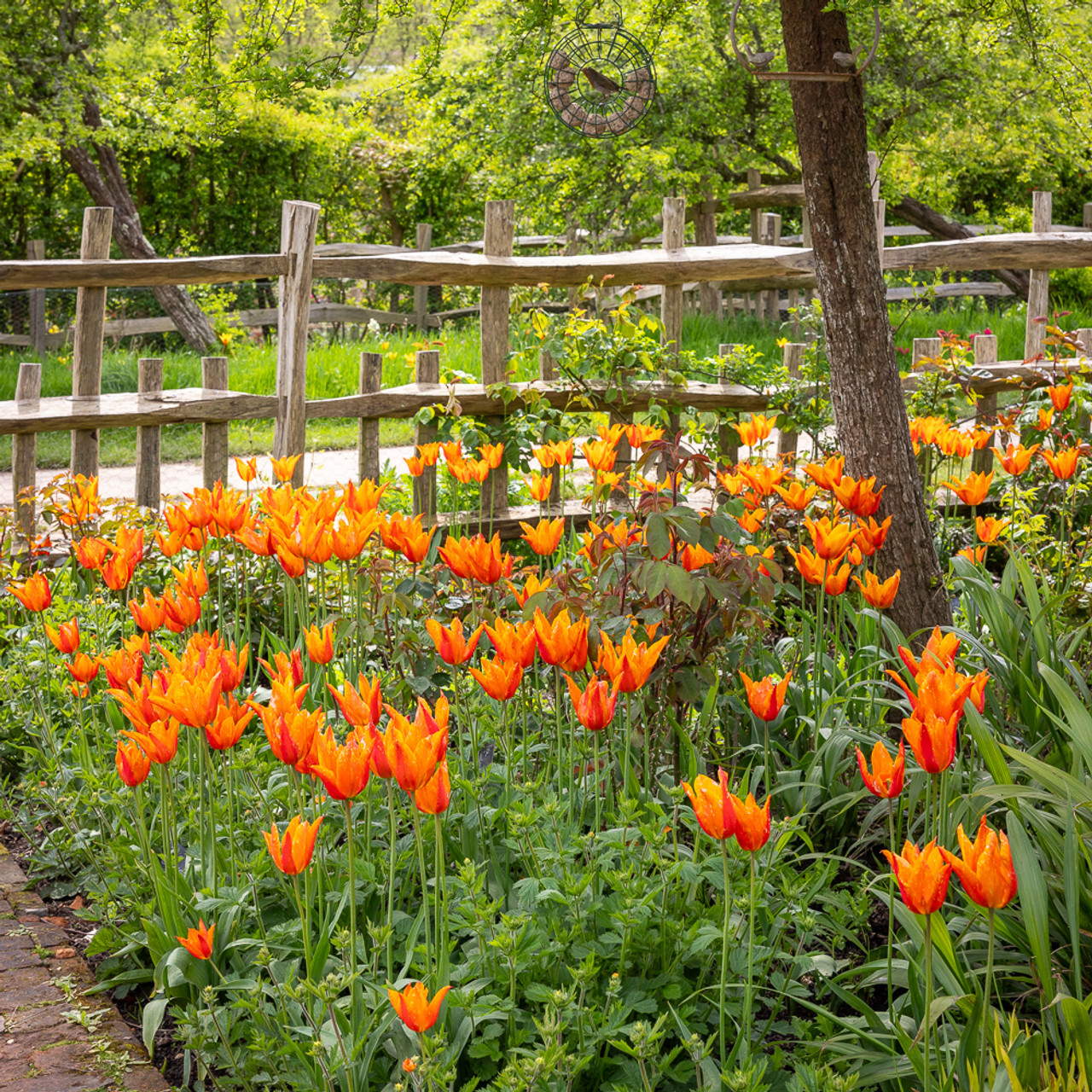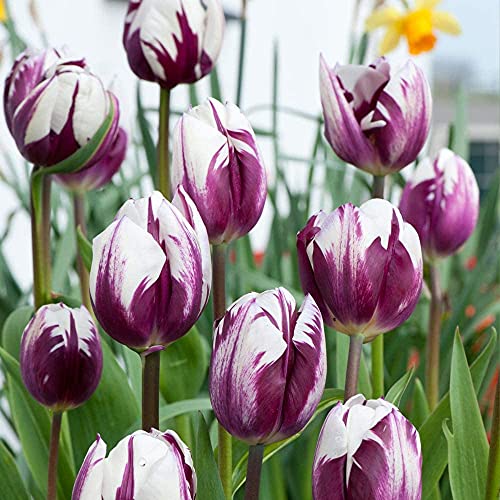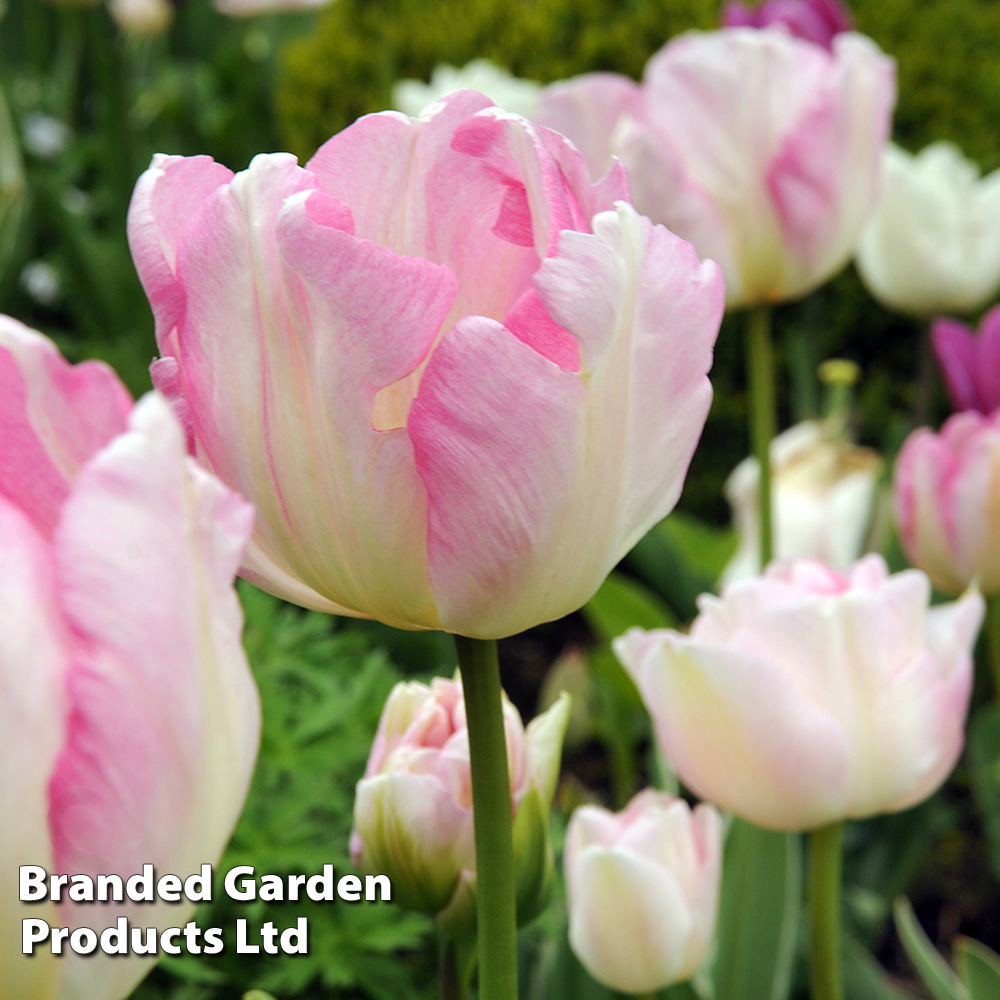When to plant tulip bulbs for bright spring blooms – and avoid this common tulip disease
Time it right for beautiful, healthy blooms

Sophie King
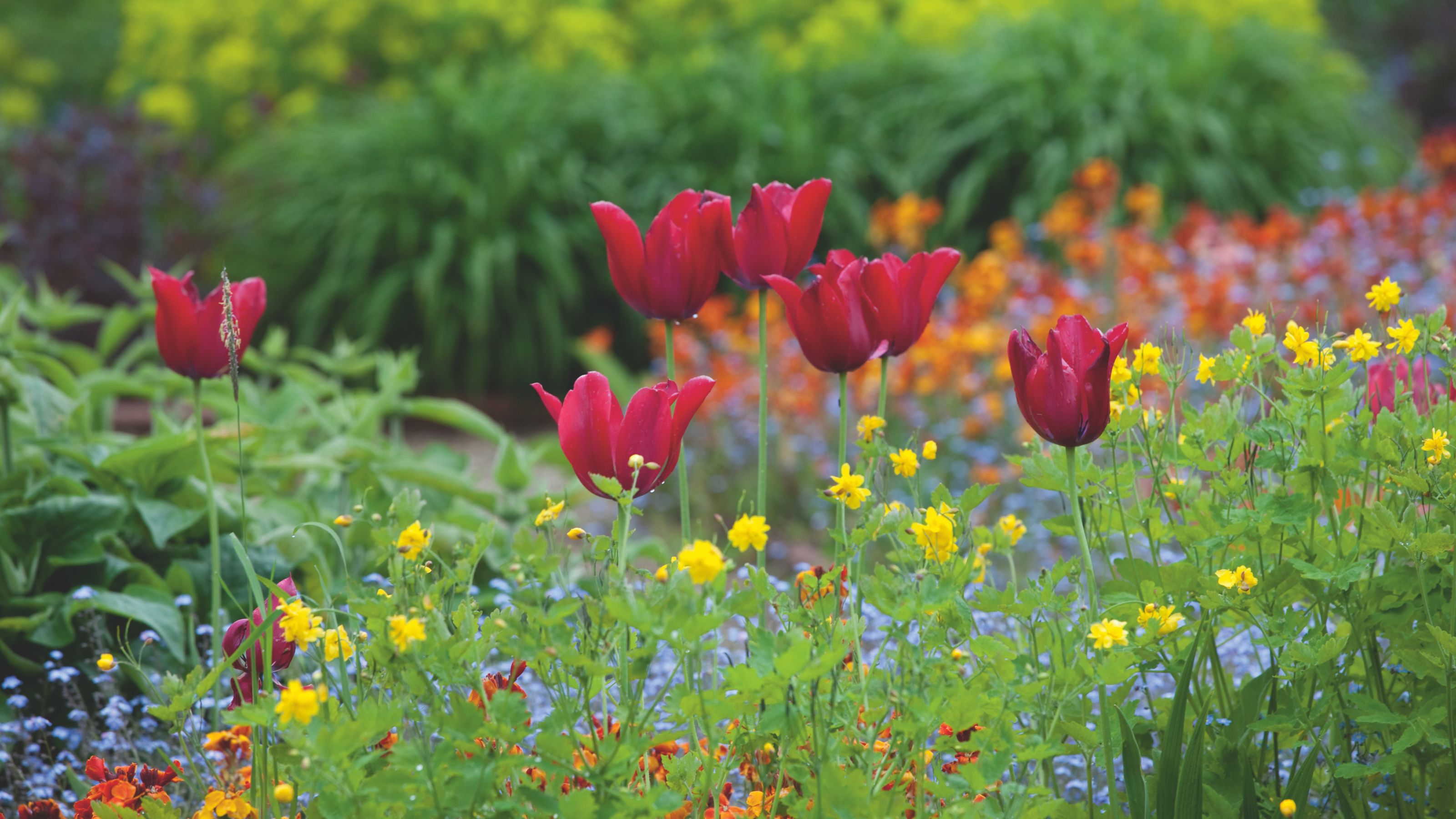
Tulips feel like something of a luxury in the garden, and growing your own flowers is surprisingly easy – as long as you know when to plant tulip bulbs.
Learning when to plant bulbs for spring is the secret to successful blooming next year. Whether you're learning how to plant tulips in pots or in the ground, it's important to get your timings right to ensure bright spring displays.
Plus, figuring out when to plant tulip bulbs could help you avoid the dreaded tulip fire disease – but more on that later.
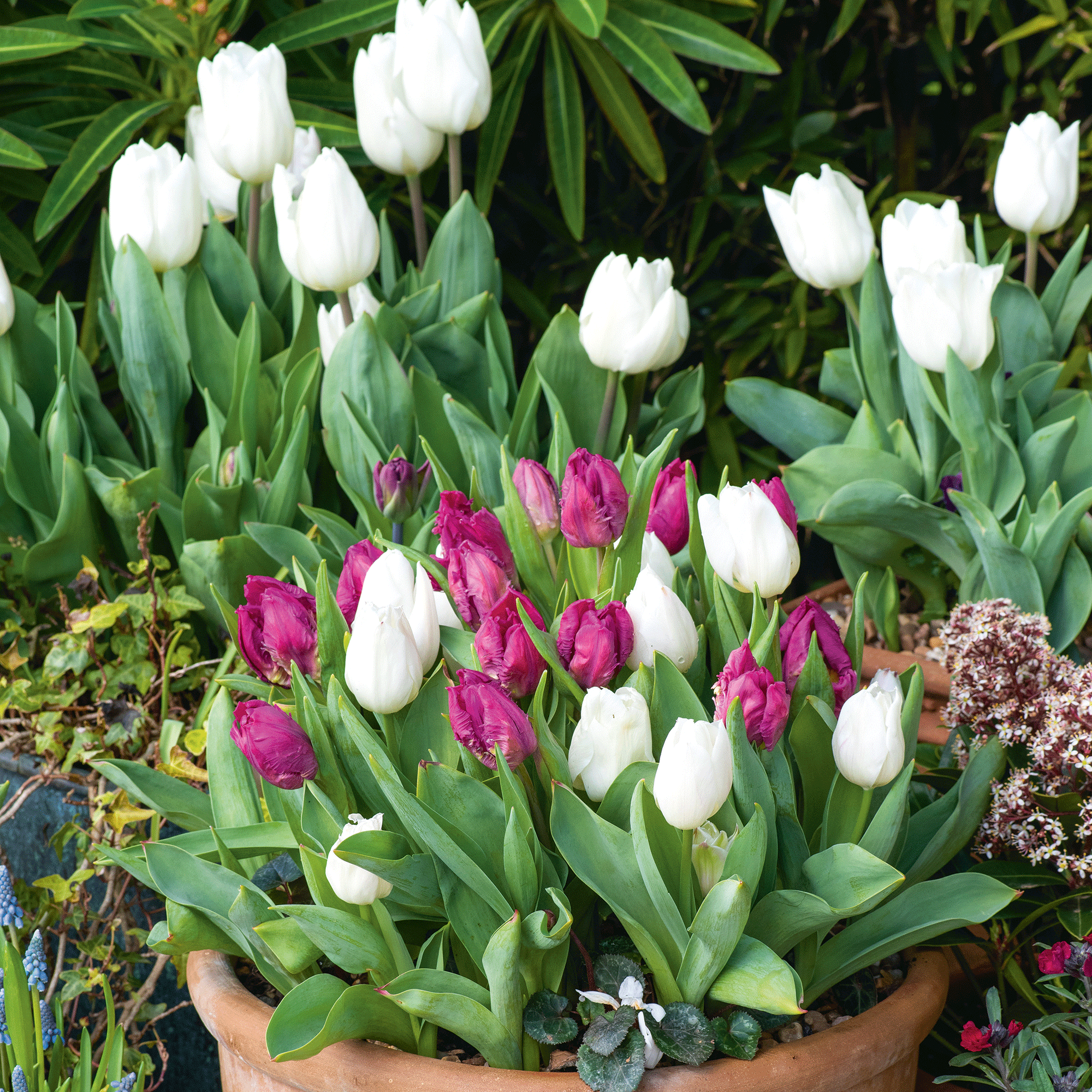
When to plant tulip bulbs
Tulip bulbs love the period between summer and winter, when the ground is cooler but not completely frozen, as this allows them to establish their root systems before the frost forms.
'Tulips, known for their vibrant colour, are best planted later from October to November,' says Emma Fell, head of learning and development at Hillier Garden Centres. Milder temperatures provide the most promising conditions for freshly planted bulbs.
'We recommend planting tulips in early autumn, several weeks before the first frost,' agrees Josh Novell, gardening expert at Polhill Garden Centre.
But the weather isn't the only factor to consider when working out when to plant tulip bulbs. Tulip fire is an unfortunately common disease which distorts the leaves, causing a brown, withered appearance. Planting at the right time can make all the difference.
Sign up to our newsletter for style inspiration, real homes, project and garden advice and shopping know-how
'The colder, later weather is more likely to destroy any disease lurking in the soil,' explains Emma.
As long as you get the bulbs in the ground before it freezes over, you'll be in good stead for spring blooms – so knowing when to stop planting spring bulbs is key.
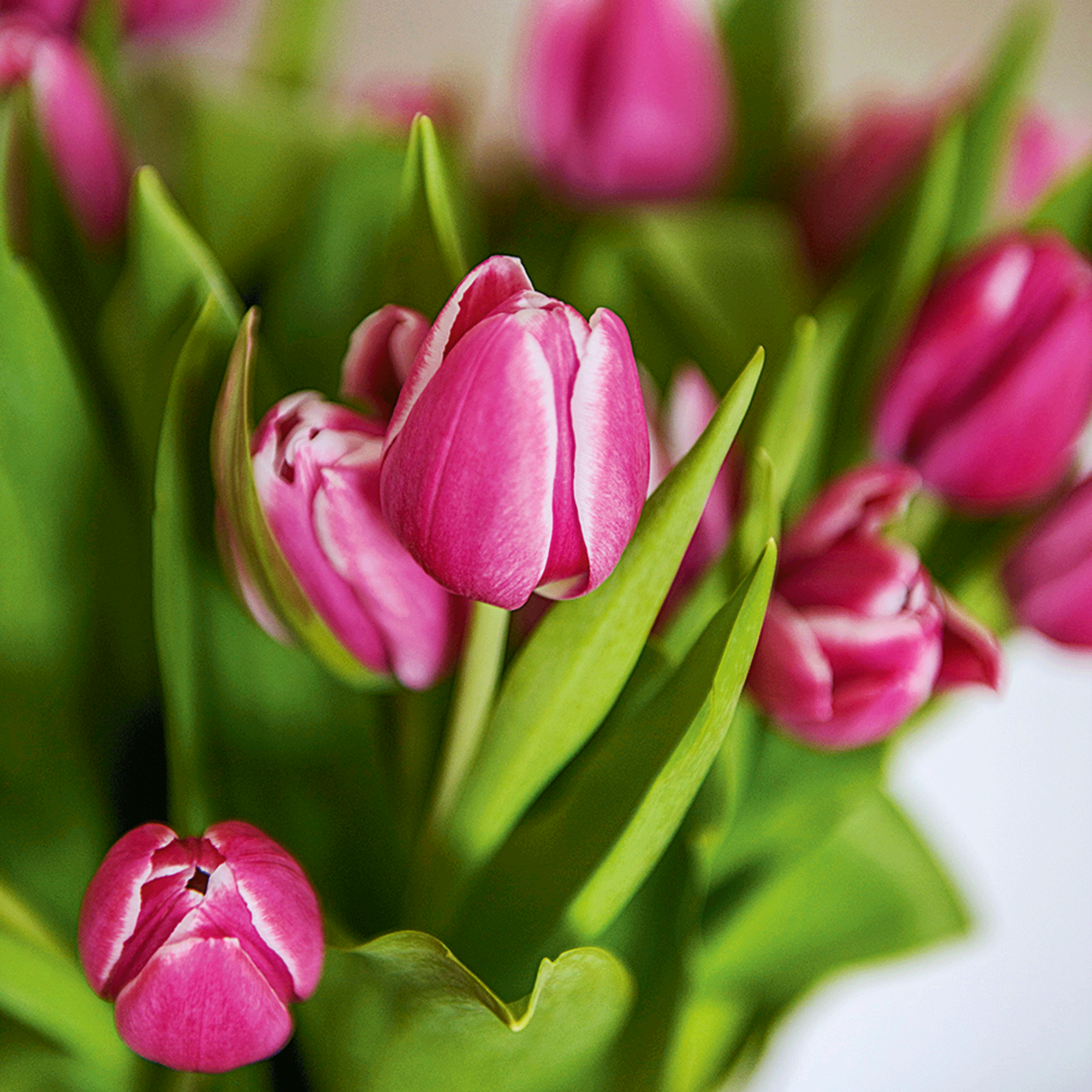
Where to plant tulip bulbs
Once you’ve added planting tulip bulbs to your list of garden jobs to do in November, you'll also need to know where to plant tulips. And while tulips are fairly hardy plants that can still thrive in partial shade, they do prefer full sun.
Because of this, tulips will grow best in a south-facing garden – but they also work wonders as one of the easiest spring bulbs to grow in pots if you move them around the garden, following the sun.
‘Make sure to choose a space that receives at least six hours of sunlight per day, no matter how strong it is,’ advises Steve Chilton, garden expert at LeisureBench.
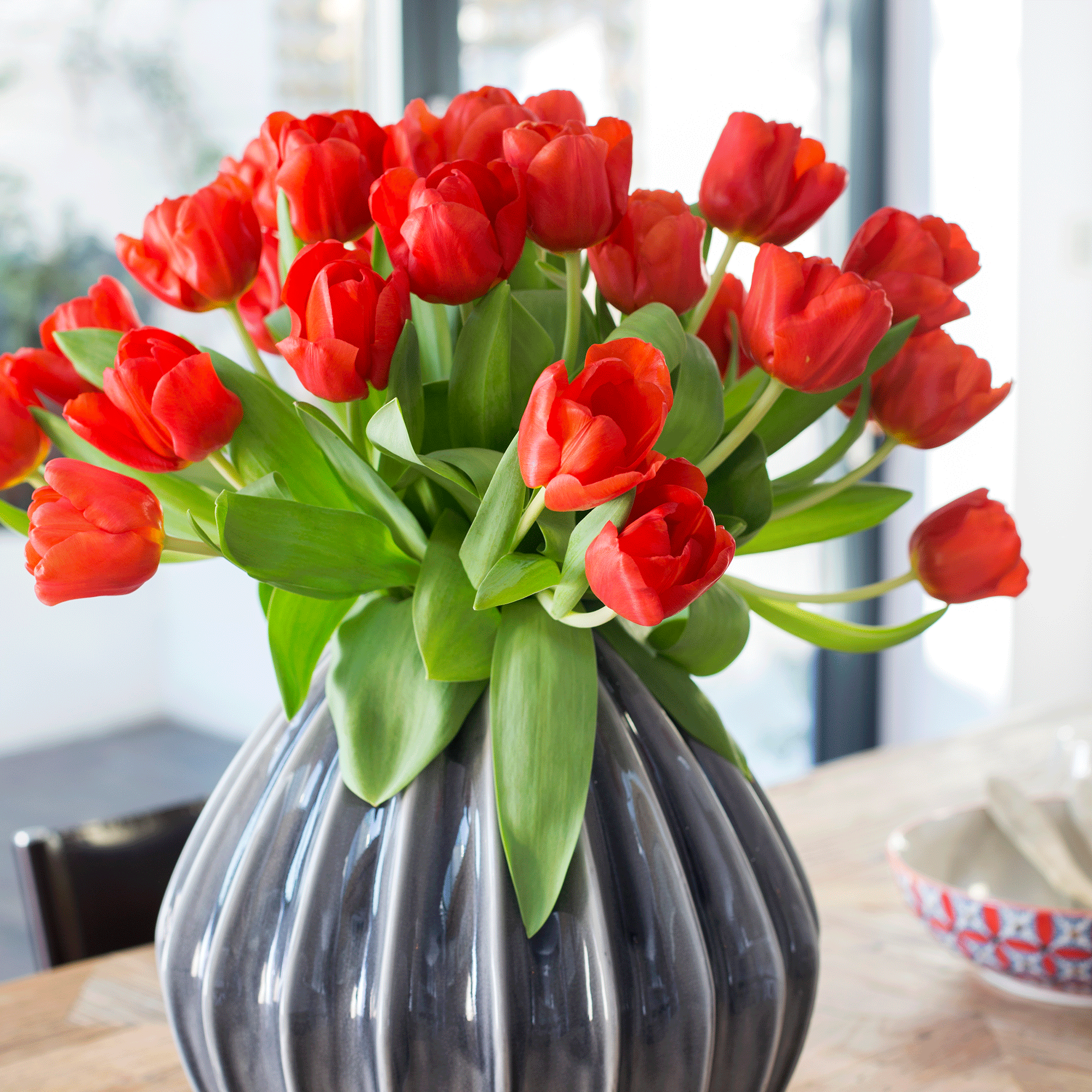
How to prevent tulip fire
The thought of a fungal disease affecting your beautiful tulip flowers might unsettle you, but luckily, it can be prevented.
Tulip fire is affected by the fungus Botrytis tulipae and can result in distorted leaves that look as though they’ve been scorched by fire – and nothing like the tulips we all know and love.
However, planting your bulbs later in the year is a surefire way (no pun intended) to keep tulip fire at bay. This disease spreads during the warmer months, which is why some experts suggest waiting until November to plant your tulip bulbs. Of course, nothing is 100% effective in keeping this disease away, but this can help to lower the chances.
The one saving grace is that tulip fire only affects tulips, so you don’t need to worry about the rest of your plants if you discover that your tulips have been affected.
Try these tulip bulbs
FAQs
Do tulips come back every year?
If you're wondering which spring bulbs come back every year, tulips make the list – but they're a little trickier to encourage back into bloom than other spring bulbs.
For this reason, many gardeners treat tulips as annuals. But by letting the foliage die back naturally, you can encourage your bulbs to bloom again.
Can you leave tulip bulbs in the ground all year in the UK?
Yes, you can leave tulip bulbs in the ground all year – but only if they are already established. As long as they have already flowered and have established roots, there should be no need to pull them up.
It’s only if you’re planting bulbs for the first time that you need to plant them at a specific time of the year. And if you’re doing that, try to plant them between September and November.
Now you know when to plant tulip bulbs, you can look forward to a spring garden bursting with colour.

Lauren Bradbury has been the Content Editor for the House Manual section since January 2025 but worked with the team as a freelancer for a year and a half before that. She graduated with a Bachelor’s degree in English and Creative Writing from the University of Chichester in 2016. Then, she dipped her toe into the world of content writing, primarily focusing on home content. After years of agency work, she decided to take the plunge and become a full-time freelancer for online publications, including Real Homes and Ideal Home, before taking on this permanent role. Now, she spends her days searching for the best decluttering and cleaning hacks and creating handy how-to guides for homeowners and renters alike, as well as testing vacuums as part of her role as the Ideal Home Certified Expert in Training on Vacuums, having spent over 110 hours testing different vacuum models to date!
- Sophie KingGardens Editor
